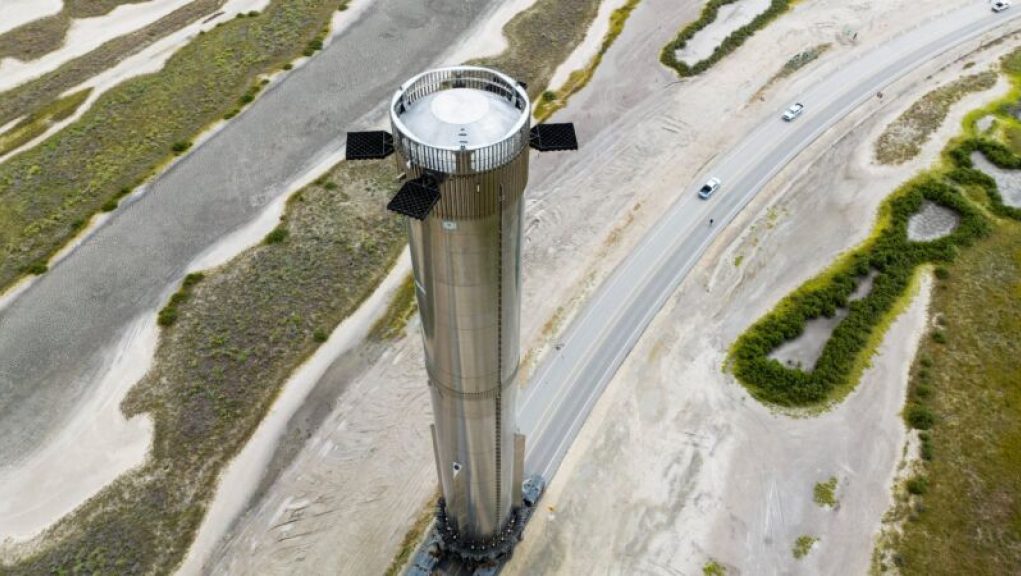Welcome to Edition 6.08 of the Rocket Report! The US Department of Justice is taking SpaceX to court over allegations of hiring discrimination, but the government is relying more than ever on SpaceX’s technical prowess. Once again, Elon Musk’s social media posts are part of the story. This week, we also cover the successes and struggles of small rockets, where Rocket Lab is leading the pack.
As always, we welcome reader submissions, and if you don’t want to miss an issue, please subscribe using the box below (the form will not appear on AMP-enabled versions of the site). Each report will include information on small-, medium-, and heavy-lift rockets, as well as a quick look ahead at the next three launches on the calendar.
12 pm ET update: The list of upcoming launches at the bottom of the Rocket Report has been updated to reflect the Crew-7, Starlink 6-11, and H-IIA launch delays.

Rocket Lab re-flies engine after ocean splashdown. Rocket Lab launched its 40th Electron mission this week and achieved an important milestone in its quest to reuse orbital rockets, Ars reports. As part of the mission, the launch company reused a previously flown Rutherford engine on its first stage for the first time. In terms of orbital rockets, only NASA’s space shuttle and SpaceX’s Falcon 9 vehicles have demonstrated the capability of re-flying an engine. With Rutherford, Rocket Lab has now also flown a rocket engine that landed in the ocean for the first time.
Advertisement
Reuse no longer an anomaly … What seems clear, with the re-flight of this engine, is that the industry’s adoption of reusable rockets is accelerating. Whereas SpaceX was the anomaly in 2015 when it first landed an orbital booster and then flew a first stage for the second time in 2017, the company is now not alone. Nearly every commercial development program for medium- and heavy-lift rockets in the world today has a component of reusability, whether for the first-stage engines or for the entire vehicle itself. Rocket Lab is developing a new medium-class rocket called Neutron with recoverable and reusable booster stages. (submitted by EllPeaTea and Ken the Bin)
Astra’s CEO says his company can weather current struggles. Chris Kemp, Astra’s co-founder and CEO, recently spoke with Ars about the company’s financial predicament. Astra has slowed development of its new small-class launch vehicle, called Rocket 4, and recently announced layoffs as it cuts expenditures, searches for money, and tries to boost its struggling stock price.
Astra is not Virgin Orbit … Kemp argues that Astra finds itself in a different position than Virgin Orbit, a small satellite launch company that went bankrupt earlier this year. Astra has diversified and can lean on a separate source of revenue in a promising business building electric thrusters for small satellites. This business, which Astra calls spacecraft engines, was made possible by acquiring Apollo Fusion in 2021. “I could characterize the launch business at Astra as fighting for its survival, but I wouldn’t characterize Astra as fighting for its survival,” Kemp says.
Another North Korean launch failure. The second flight of North Korea’s Chollima 1 rocket faltered before reaching orbit Thursday with a small military spy satellite, Space News reports. The failure occurred during a third-stage flight on Thursday’s mission, which came about three months after the first launch of the Chollima 1 failed in May during an earlier stage of flight. Debris from the Chollima 1 rocket crashed into an undisclosed location east of the Philippines, according to South Korea’s military. North Korea’s state-run news agency said Thursday’s launch failed “due to an error in the emergency blasting system,” apparently a reference to the rocket’s flight termination system or destruct mechanism.
Advertisement
Picking up the pieces … South Korea’s military said a search operation is underway, in collaboration with the US military, to retrieve debris from the rocket. The recovery will allow intelligence analysts to evaluate North Korea’s space technology. South Korea’s military said in July that debris recovered from the first Chollima 1 launch failure in May indicated that North Korean technology had “no military utility as a reconnaissance satellite at all.” North Korea’s state-run news agency said the country will make another satellite launch attempt in October.
A spaceport saga in Georgia. Officials in Camden County, Georgia, have tried to lure companies to launch rockets there for the better part of a decade. But faced with opposition from local residents citing environmental, safety, and funding concerns, the project never got off the ground. Voters rejected the project in a 2022 referendum. County officials still tried to move forward with the spaceport initiative after the failed referendum, but Georgia’s Supreme Court ruled in February that the county had to abide by the voters’ wishes.
Who benefitted from Spaceport Camden? … The fallout from the spaceport project isn’t over yet. Under pressure from lawsuits and from some of its own elected officials and residents, Camden County has started to release records about the $12 million in taxpayer money it spent on the canceled spaceport project, according to The Current, an independent news organization that covers coastal Georgia. That’s a good chunk of change for a county with a population of about 55,000 people, and the county has nothing to show for it. Payments dating back to 2013 show contracts and service agreements between the county and spaceport consultants, lawyers, engineers, and publicists, among others.
The Department of Justice has recently filed a lawsuit against SpaceX, one of the most prominent space exploration companies in the world. The suit was filed due to allegations that the company failed to comply with applicable laws, rules and regulations while constructing its project in the state of Georgia.
At the heart of the case is the $9 million Spaceport Camden project, which was meant to be a major launch facility for SpaceX. The project was expected to bring jobs and economic activity to the area, however, those dreams were ultimately never realized.
In its decision to file the lawsuit, the Department of Justice alleges that SpaceX violated the National Environmental Policy Act (NEPA) by failing to properly assess the project’s environmental impacts. The NEPA is legislation that requires government agencies to consider the potential impacts of a project on the environment and public wellbeing, including potential noise impacts from future launches.
The department is also alleging that SpaceX chose to ignore multiple warnings from the Federal Aviation Administration (FAA), as well as other state agencies. These warnings pertain to the safety of airspace near the project and potential environmental consequences from constructing a launch facility in the region.
While the spaceport project is currently on-hold pending the lawsuit, sources have confirmed that SpaceX has already deeply invested in the project and a loss could potentially be financially damaging for the company.
The lawsuit has thus sparked renewed attention on SpaceX’s project in Georgia, as other states, such as Texas, are now becoming attractive alternatives to build the launch facility.
It remains to be seen if SpaceX will be able to honor its commitment to the Spaceport Camden project and settle the lawsuit against the Department of Justice. However, whatever decision is made, it is sure to have far-reaching impacts on the space exploration industry.




















